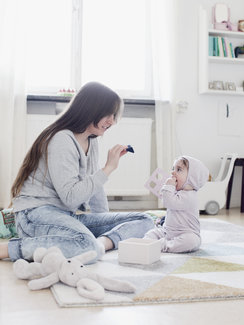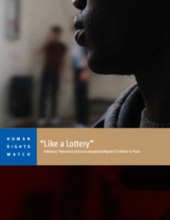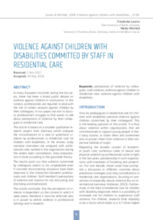

Displaying 131 - 140 of 237
The aim of the systematic review described in this article was to determine the outcome of child maltreatment in long-term childcare and the scope of the evidence base in this area.
In this study, the life stories of four foster mothers of victims of maternal sexual abuse were collected.
This report from Human Rights Watch examines the arbitrary procedures and inordinate delays in determining that unaccompanied migrant children in France are under age 18, the first step to entry into the French child protection system.
This study focuses on workers’ rationales in placement decisions in child abuse cases in the Netherlands.
This paper adopts a life course perspective to explore well‐being amongst youth (18–25 years) who migrated as children to the UK and France.
Based on ongoing qualitative research conducted with migrant families in Switzerland, this paper builds on empirical data gathered through interviews with both migrants and their G0 parents, from EU (France, Italy, Germany, Romania and Portugal) and non-EU countries (Brazil and North-African).
This study explores how the social workers and the families cope with the paradox of constrained help and enter into some form of collaboration.
This paper aims to discuss professional’s struggle to find words to talk about perceptions of violence by their colleagues in residential care.
In this paper, the authors examine the reunification patterns of children left‐behind by parents who migrated to France and Spain in order to understand whether children from standard two‐parent families differ in their chances of joining their migrant parents in the destination country compared to children in non‐standard families (single parent and blended families), as well as the potential role of immigration policies on these chances.
This chapter from Migration between Africa and Europe investigates family life in the context of international migration between Ghana and Europe. The chapter finds that transnational family forms, in which one or more members of the nuclear family are living abroad while the other members remain in the home or another country, are common.


